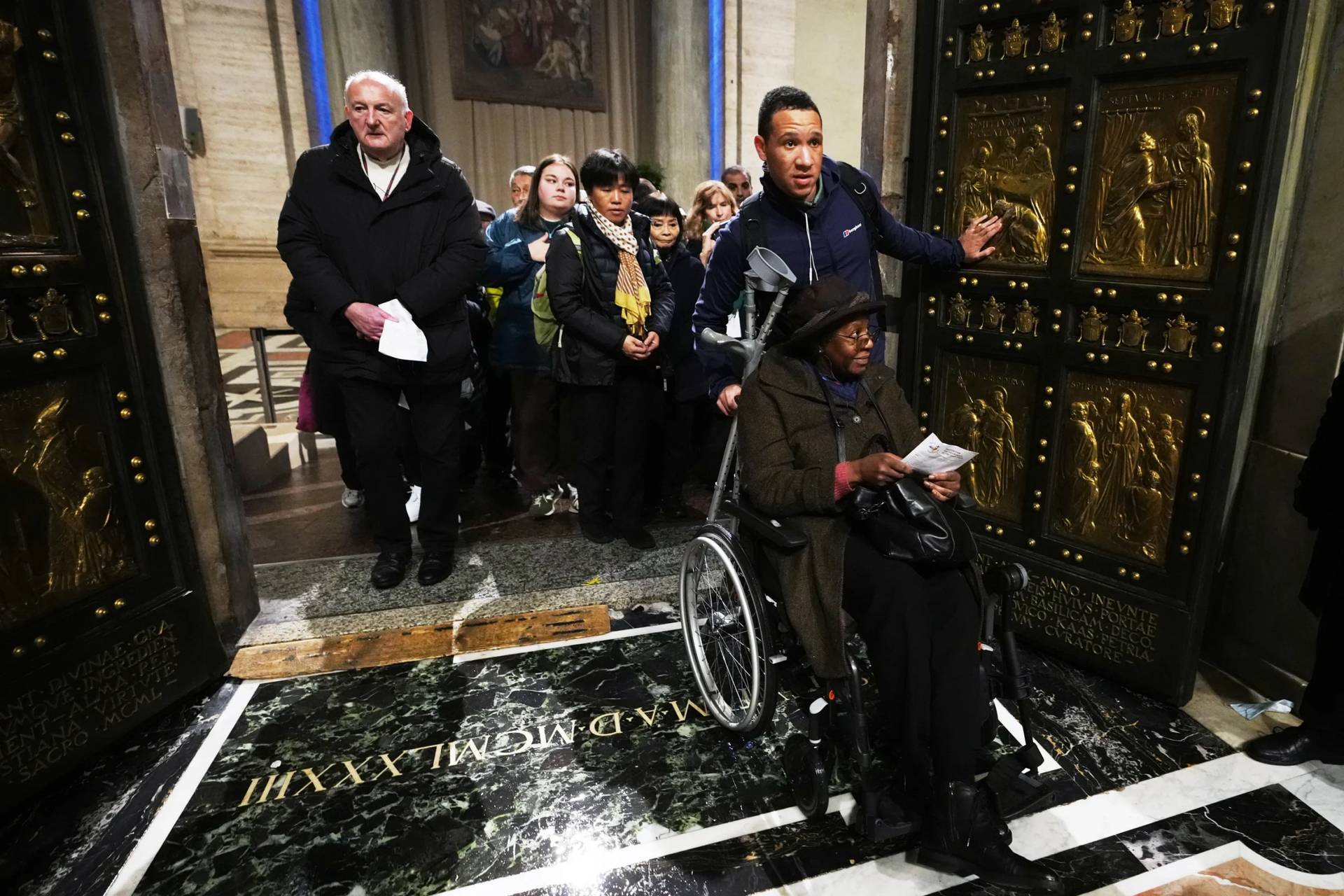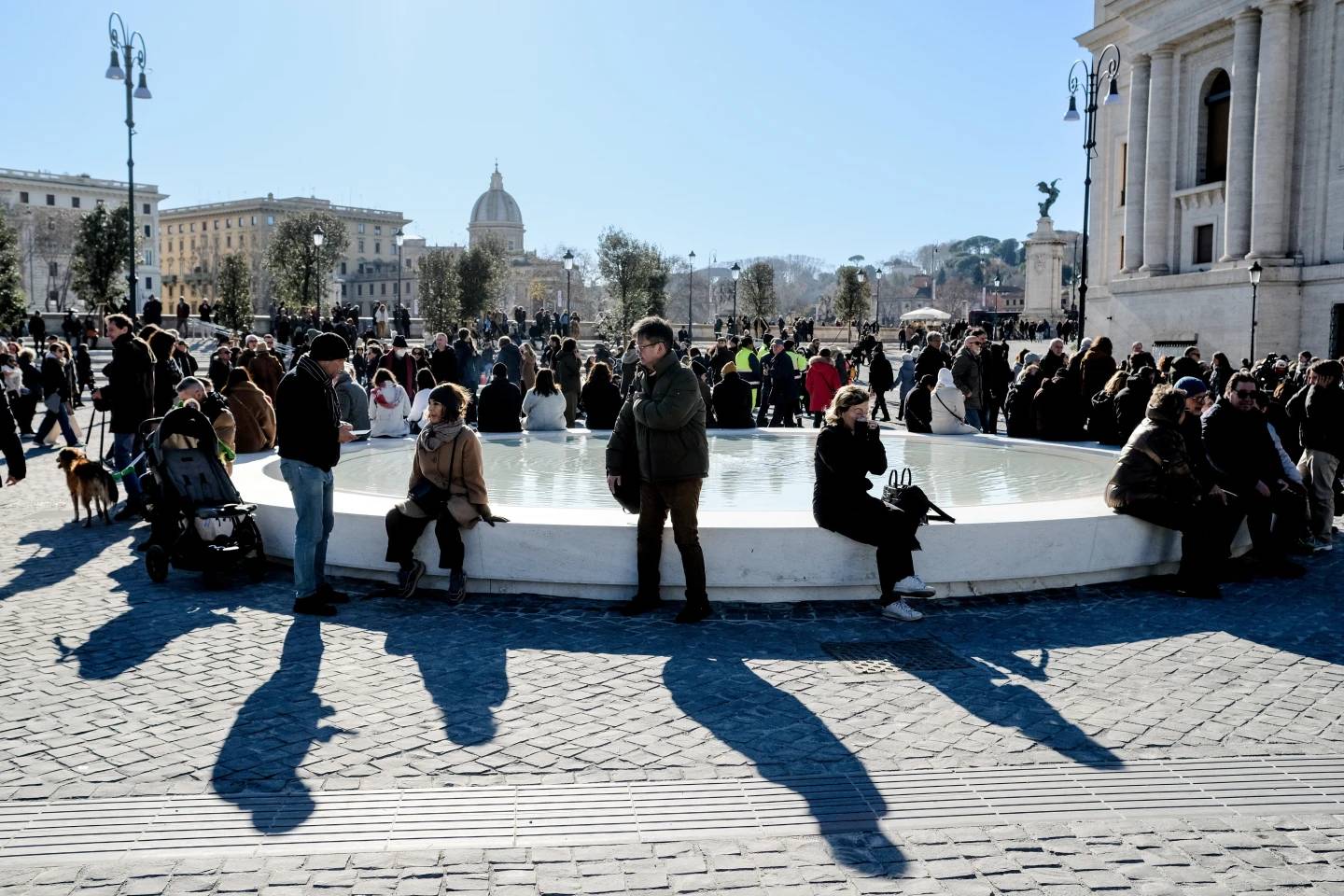ROME – Pope Francis on Thursday delivered one of his most developed reflections yet on a virtue he sees as key to his papacy and to pastoral leadership everywhere, “discernment,” urging newly ordained bishops to cultivate an “attitude of listening” and not to be “imprisoned by nostalgia for being able to give just one answer to apply in all cases.
“Authentic discernment,” the pope said, “although definitive at every step, is always an open and necessary process, and can be completed and enriched.”
Although Francis did not make any direct reference on Thursday to the controversy surrounding his document on the family, Amoris Laetitia, and its cautious opening to allowing divorced and civilly remarried Catholics to receive Communion, many of the new bishops in his audience may have heard an echo of those debates at several points.
Discernment, the pope insisted, “can’t be reduced to repeating formulas such as ‘high clouds send little rain’ to a concrete person, who’s often immersed in a reality that can’t be reduced to black and white.”
RELATED: Advice for baby bishops school: Get out to lunch and dinner!
The pope said discernment is an “antidote against rigidity, because the same solutions aren’t valid everywhere.” He called on pastors to have “the courage to ask themselves if yesterday’s proposals are still evangelically valid.”
Simply repeating old formulas, he said, “might calm anxieties about our performance, but would leave us relegated to the margins and the lives still dried up that need to be watered by the grace of which we are the custodians.”
The pontiff’s words came in an audience Thursday morning, held in the Sala Clementina of the Vatican’s Apostolic Palace, with newly appointed bishops from around the world taking part in an annual training program offered by the Vatican’s Congregation for Bishops. Popularly, that program is known as “baby bishops school.”
It’s an opportunity for the pope to issue a few “marching orders” to the bishops he’s appointed over the last 12 months, and it seemed clear on Thursday that calling them to exercise what he called “authentic discernment” was his main concern.
Without learning the fine art of discernment, he said, bishops won’t be “good weathermen of what’s arising in heaven and on earth,” and will be “incapable of evaluating God’s times.”
A bishop, he said, can’t take the gift of discernment for granted, but must “continually learn it as a primary condition for illuminating any human wisdom, [whether] existential, psychological, sociological and moral, which we can draw on in the task of discerning the paths of God for the salvation of those entrusted to us.”
The pope recommended deep and regular prayer as a condition of sound discernment, saying it produces a kind of interior freedom that keeps a bishop “balanced in his choices and his behavior, both personal and ecclesiastical.”
The pope also insisted that discernment is not a private exercise by an individual prelate, but rather an ecclesial activity that unfolds in a community.
“The bishop is not the ‘father-patron,’ self-sufficient, and still less the frightened and isolated ‘solitary pastor,’” he said.
In particular, Francis advised the bishops to consult three specific groups as he attempts to reach decisions: His brother bishops, his own priests, and the lay faithful.
Real people in concrete situations, he said want only “to draw from the treasure of the Church what’s most useful for the ‘today’ of their salvation.”
Francis said great teachers of the faith need contact with ordinary people to keep them grounded. He quoted English Cardinal John Henry Newman to the effect that without such an exchange, “the faith of the most cultivated can degenerate into indifference, and that of the humblest into superstition.”
Francis asked bishops to practice discernment in a spirit of “humility and obedience,” and “without self-aggrandizement or narcissism.”
Finally, Francis also called on bishops to be attentive to “the culture of religiosity of the people,” rather than seeing it as a kind of “Cinderella story … unworthy to enter the noble salons of concepts and superior reasoning on the faith.” Instead, he said, popular religion is often the “foundation of a people’s self-understanding,” and discernment has to enter into dialogue with it.
“Remember that God was already present in your diocese before you got there,” Francis told the new bishops, “and he’ll still be there when you leave.”
In his greetings to the new bishops on Thursday, Francis also supplied a few personal touches. For instance, Bishop Robert Coerver of Lubbock, Texas, tweeted out that Francis had acknowledged the floods in Texas caused by Hurricane Harvey.















